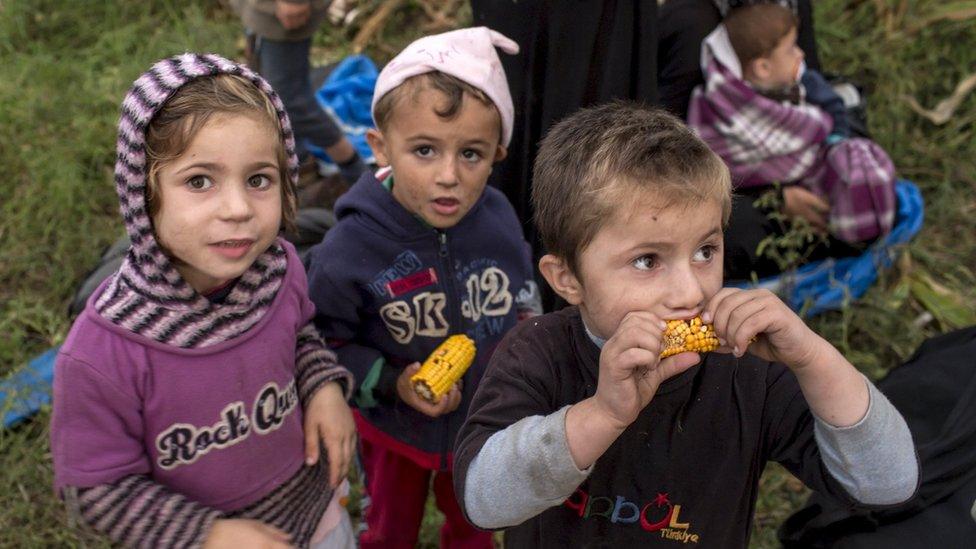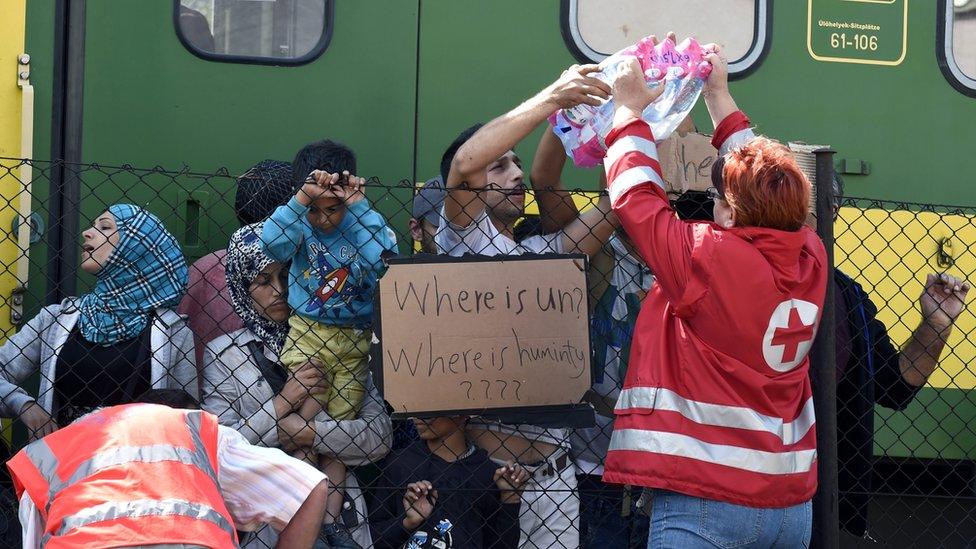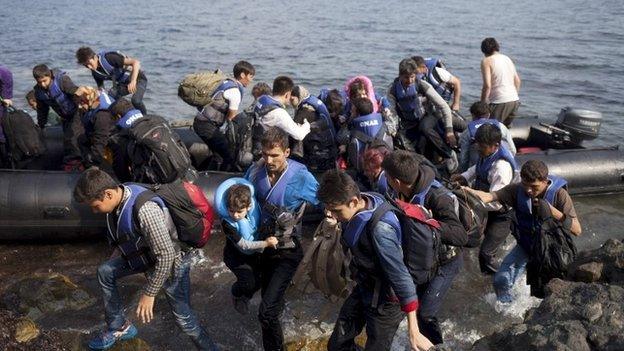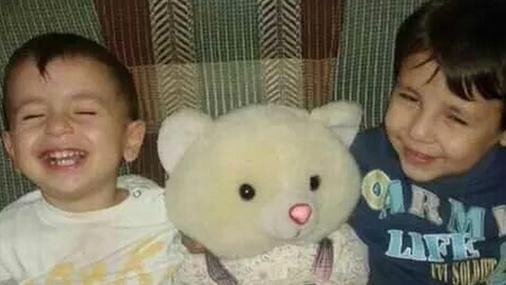Migrant crisis: 'Extraordinary' support for charities
- Published

The British public's response to the refugee crisis has been "extraordinary" and "so supportive", charities say.
Save the Children said its appeal, which started on Thursday, raised more than £500,000 in its first 24 hours.
The British Red Cross said the public were "realising that it's a massive humanitarian crisis" and had given "hundreds of thousands" of pounds.
On Friday David Cameron said the UK would take in "thousands" more refugees from the conflict in Syria.
European countries are struggling to cope with a surge of migrants from the Middle East and Africa.
Austria and Germany are expecting thousands more migrants to arrive from Hungary after Budapest eased restrictions on their travel.
More than 350,000 migrants were detected at the EU's borders in January-August 2015, many of them fleeing conflicts in Syria and Afghanistan, and abuses in Eritrea.
In other developments:
The Scottish government says it will provide initial funding of £1m to co-ordinate Scotland's response to the refugee crisis
A petition calling for Britain to take more refugees has received more than 400,000 signatures - four times the amount needed for the issue to be considered for debate by MPs
Chancellor George Osborne has said resettling refugees has to be part of a wider plan to deal with the crisis
Speedy donations
Calls for the UK to take in more refugees have intensified after the publication of a picture of the body of a drowned three-year-old Syrian boy, Alan Kurdi, washed up on a Turkish beach.
Save the Children's appeal has been boosted by several authors pledging to match donations up to £10,000.
At 20:30 BST on Saturday, a spokeswoman for the charity told the BBC the scheme - organised via social media - had raised £380,000 so far.
And she said thousands had been donated by lawyers giving an hour's pay, using the Twitter hashtag #Billablehour.
She said she could not yet update the figure of more than £500,000 raised, but added: "The speed at which this money has been raised has been, I think, quite extraordinary."

The Red Cross has been helping migrants in countries including Hungary
The British Red Cross said it could not give details of how much money it had raised, but said it was already in the hundreds of thousands.
A spokeswoman said the money would be used by Red Cross organisations in every country affected by the crisis.
"The public response has been so supportive and people are realising that it's a massive humanitarian crisis," she said.
An appeal by Islamic Relief UK started on Friday and raised more than £50,000 in its first 24 hours.
A spokesman said Islamic Relief worldwide had spent £130m helping those affected by the Syria conflict since 2011, but the latest appeal was to help refugees in Greece, Germany and Italy.
He said there had been a "sense of despair" in Syria in recent months because people there felt the crisis had been "rather forgotten" by the international community.
But he said the situation in Europe was "shining a light" on Syria as part of the wider crisis, and he hoped there would now be more international efforts to bring the Syrian factions "to the negotiating table".
Plea from councils
Earlier, UK council leaders called on the government to provide more resources to help them house the extra refugees the UK is planning to accept.
David Simmons from the Local Government Association (LGA) said: "We need to make sure that if people are going to be moved to the UK, that we've a clear idea of what the cost is going to be, to provide the public services that they expect when they come here."
Under existing schemes, government financial support for Syrians resettled in the UK lasts 12 months.
Details of Mr Cameron's plans have not been announced, but the Syrians are expected to be taken to Britain under existing schemes, so the 12-month limit on central government support is expected to apply.
After that, costs including health, education and social care will fall to councils.
An exact figure on how many people the UK will take in is yet to be decided, but Mr Cameron made it clear on Friday that the extra refugees would come from camps bordering Syria, and not from among those already in Europe.
- Published4 September 2015

- Published4 September 2015
